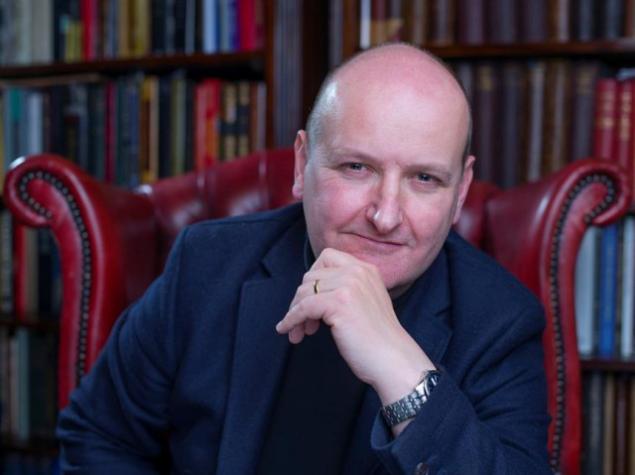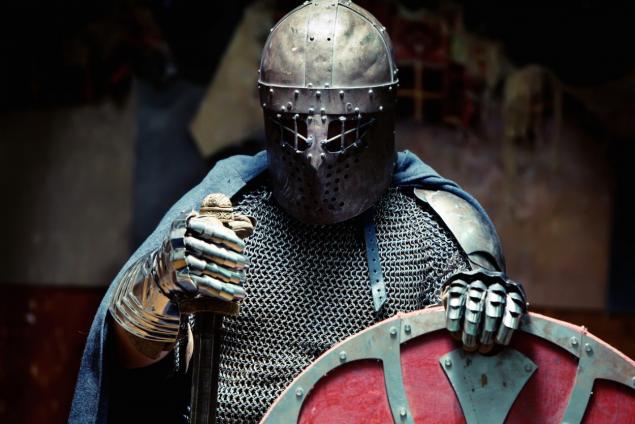834
10 stupid things about medieval life from the books in the genre of "fantasy"
A small journey in time. Medieval AngliyaNekotorye art images so firmly established in our understanding of the Middle Ages, it seems that it is fantasy novels reveal to us the real side of life in the Middle Ages. But they more often mislead us.
Ages covers a huge amount of time - from the 5th century BC. e. until the 15th century AD. e., and includes a large number of European countries. But you can easily notice that many revelations here relate to it in England of the 14th century, and all thanks to the work of Ian Mortimer's The Time Traveler's Guide to Medieval England («Time Travel in medieval England»).

Should fantasy novel to be historically accurate? Of course not. Part of the process of creating worlds - the invention of new ideas, or a combination of elements from different cultures and periods of time, or even the use of historical myths and misconceptions. But if you read a lot of books or watch a lot of movies with psevdosrednevekovymi settings, you might get the mistaken impression that you really know what life was like in the Middle Ages.
Let us consider the basic error and expose them.
1. The peasants were a single class of people who were more or less equal h2> It is easy to think that people in the Middle Ages were simply divided into very broad classes: members of the royal family, nobles, knights, clergy and peasants at the bottom. But just what is before your name was not the word "king", "Lord", "sir", "father" and "brother" (or their female counterparts) does not mean that you were not concerned about their own social status. There is a large class of people that today we could simply call the "peasants", but in reality, and within this class has a complex hierarchy.
2. Inns were restaurants with large common rooms downstairs and a room on the floor h2> There are a few standard images that are firmly rooted in psevdosrednevekovom fantasy, and one of them - the tavern. You and your companion enjoy a few mugs of ale in the main hall, listening to all the local gossip, and then climb into a rented room where sleep (alone or with a lover) on a hard mattress.
Beer and cider are often prepared at home; husband could demand that his wife learned brewing h4> This image is not entirely fiction, but the truth is a little more difficult, not to mention the fact that interesting . If you have joined City hotel medieval England with a beer, you probably would get something resembling the fantasy inn. There were hotels, where you could rent a bed (or rather, in bed), and they did have rooms, to eat and drink. But they were not restaurants; Hotel owners are usually allowed to serve food and drinks to their guests only. Mortimer says that you probably would have found a small room with several beds, which can accommodate up to three people. Only in the most prestigious hotels to be found the room with one or two beds.
3. You never see a female gunsmith or merchant h2> Of course, some fantasy stories will put women on an equal (or relatively equal) status with men, giving them the same professions and trades as men. But in many fictional story of a woman, which makes armor or sells goods, it would have seemed out of place, even though it is wrong reflects the medieval reality. In England, the widow could continue trading business of her deceased husband. And Mortimer says that among tailors, armorers and merchants often be found widows. Some female traders were actually quite successful, were international trade and had an impressive capital.
4. People had terrible table manners, bones and scraps are thrown to the floor h2> Sorry, even in the Middle Ages, members of secular society, from king to Villani followed a certain etiquette, and the etiquette also included, and the rules of conduct for table. In fact, depending on when, where and who ate, it was necessary to observe very strict rules. For example, if the Lord handed someone a cup at the dinner table, it was a sign of its location. Should have taken the cup, drink a little and back.
5. People do not trust any form of magic, and often burned witches h2> In some fantasy stories of magic is easily perceived by all as a part of everyday life. In other to magic are at best with suspicion and at worst - as blasphemy. Maybe you've even heard of the biblical designation "witch do not leave alive».
In the 11th century was considered witchcraft as a secular crime, but the church made several suggestions witch, before heading to the fire h4> It is not always the magic of the Middle Ages was regarded as heresy. In his essay "The witches and medieval myths" Burning Time "" Anita Obermeyer said that during the 10th century, the Catholic Church was not interested in punishing witches for heresy; She was more interested in rooting out heretical superstition about the "night flying creatures».
6. Men's clothing was always practical and functional h2> Yes, people of different medieval classes interested in fashion. And sometimes fashion, especially men, to get pretty absurd. Initially, clothing was more functional, but during the 14th century men's fashion in England was quite experimental. Corsets and suspenders were typical for men, and fashion are increasingly encouraged men to show the shape of the hips and legs. Some male aristocrats wore clothes with sleeves so long that risked tripping over cuffs. It has become fashionable to wear shoes with extremely long toes - at one such pair of shoes imported from Bohemia, the length of the socks was about 50 centimeters, and they had to be tied to the garters men. There was even a fad to wear the mantle so that the head passes through the hole of a sleeve and the sleeve in this case is a perspective collar.
7. The servants were always people of low birth h2> In fact, whether you are a high-ranking person, you are likely to have been senior servant. Lord able to send his son to serve in the Lord put another example to his brother's wife. The son would not receive any income, but still would be considered the son of the Lord. Cheap Lord himself could be a lord. Status in society based not simply on the fact whether you are a servant, but also on your family situation, as well as on who you were and what were your duties.
8. Medicine was founded on pure superstition h2> In the novels of fantasy healing often occurs by magic. You must be a priest who receives the gift of healing from the gods, and otherwise to be near someone who can dress the wound or make a lotion.
Wrapping patients with smallpox in a bright red cloth, the treatment of gout colchicum, the use of oil of chamomile for the treatment of pain in the ear - all this really effective treatments h4> Yes, medieval medicine was founded for the most part on what we now call the mystical nonsense. When the diagnosis was used astrology and humoral theory. Bloodletting was the accepted method of treatment, and many medicinal agents were not only useless, but also very dangerous. And although at the time were medical colleges, few doctors could learn from them.
9. The most powerful military force was covered with armor of knights on horseback h2> James G. Patterson, in his essay "The Myth of the mounted knights" explains that although the image of sitting astride a knight and was popular in the Middle Ages, it did not meet the realities of war. Brigandine cavalry, he explains, can be incredibly useful, even destructive against the new recruits, but is much less effective against enemy infantry trained. But ground troops, including knights, walking on foot, who often played the role of commanders, were invaluable in the battle. Even during the Crusades, when the image of the equestrian knight seemed a symbol of military glory, the main method of warfare was the siege.
10. Only male sexual pleasure was important h2> The general belief, popular during the Middle Ages, women were more lustful than men. To be more precise, much more lustful. Violence in medieval England of the 14th century was a crime, but not between the spouses. The wife does not legally have the right to refuse her husband, but her husband could not resist to his wife. It was felt that women always want sex, and a lack of regular relationship is bad for their health. The female orgasm was also important; Other common belief was that a woman can not become pregnant without an orgasm. Unfortunately, this has led to the fact that the rapist could not be brought to justice if the victim is pregnant.
Ages covers a huge amount of time - from the 5th century BC. e. until the 15th century AD. e., and includes a large number of European countries. But you can easily notice that many revelations here relate to it in England of the 14th century, and all thanks to the work of Ian Mortimer's The Time Traveler's Guide to Medieval England («Time Travel in medieval England»).

Should fantasy novel to be historically accurate? Of course not. Part of the process of creating worlds - the invention of new ideas, or a combination of elements from different cultures and periods of time, or even the use of historical myths and misconceptions. But if you read a lot of books or watch a lot of movies with psevdosrednevekovymi settings, you might get the mistaken impression that you really know what life was like in the Middle Ages.
Let us consider the basic error and expose them.

























